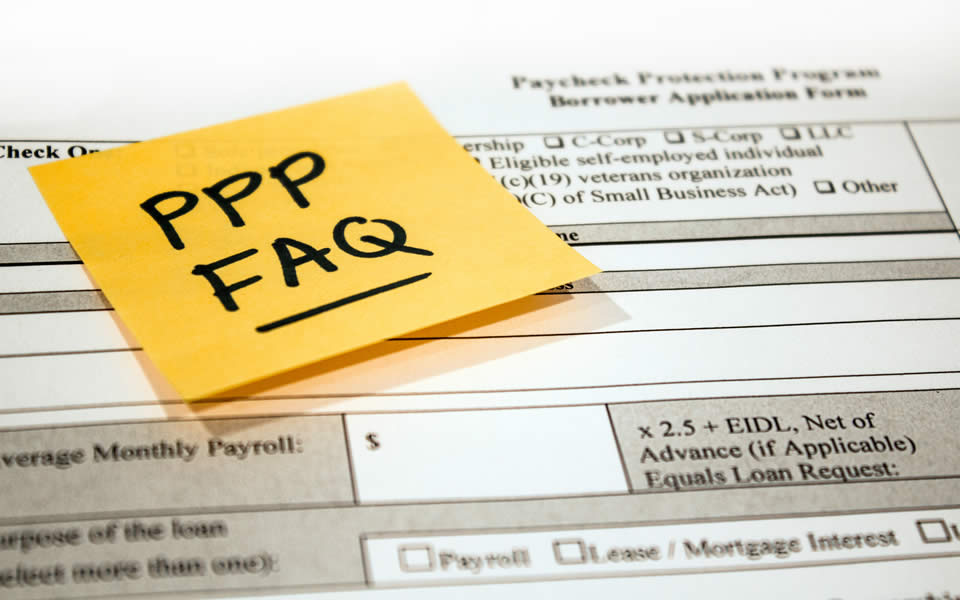While the disbursement of Paycheck Protection Program (“PPP”) loans has come to an end, lenders are now having to focus on processing numerous forgiveness applications. Per the U.S. Small Business Administration (“SBA”), a borrower can apply for forgiveness once all PPP loan proceeds have been utilized. Borrowers are required to submit forgiveness applications to their lenders prior to the maturity of the loan.
Once a forgiveness application has been received with the required supporting documentation from the borrower, the lender must perform a review and make a decision to submit the application to the SBA within 60 days from receipt. At that time, the lender must also request payment for approved applications. Upon review of the loan, forgiveness application and lender’s decision, the SBA will remit the appropriate forgiveness amounts to the lender, inclusive of any accrued interest, within 90 days of the lender issuing their decision.
In accordance with PPP loan requirements, lenders must submit 1502 reports to the SBA on a monthly basis, indicating the status of their PPP loans. For loans forgiven in their entirety, the lender must communicate the forgiveness to the borrower and mark the loan as “paid in full” on the 1502 report. If only a portion of the PPP loan is forgiven or if the forgiveness application is denied, the lender must notify the borrower of the amount forgiven or ineligibility and also inform the borrower that the remaining balance of the loan must be repaid by its stated maturity date. Loans that have a remaining balance after the forgiveness applications have been processed will be reported on the 1502 report at the amount that remains due from the borrower. Lenders will continue to submit form 1502 until the PPP loans are either forgiven or repaid.
As borrowers will be continuing to submit forgiveness applications through 2026, lenders will need to vigilant in following the appropriate steps for making forgiveness decisions, submitting applications to the SBA, and reporting as applicable.
Source
© Copyright CBIZ, Inc. All rights reserved. Use of the material contained herein without the express written consent of the firms is prohibited by law. This publication is distributed with the understanding that CBIZ is not rendering legal, accounting or other professional advice. The reader is advised to contact a tax professional prior to taking any action based upon this information. CBIZ assumes no liability whatsoever in connection with the use of this information and assumes no obligation to inform the reader of any changes in tax laws or other factors that could affect the information contained herein. Material contained in this publication is informational and promotional in nature and not intended to be specific financial, tax or consulting advice. Readers are advised to seek professional consultation regarding circumstances affecting their organization.
“CBIZ” is the brand name under which CBIZ CPAs P.C. and CBIZ, Inc. and its subsidiaries, including CBIZ Advisors, LLC, provide professional services. CBIZ CPAs P.C. and CBIZ, Inc. (and its subsidiaries) practice as an alternative practice structure in accordance with the AICPA Code of Professional Conduct and applicable law, regulations, and professional standards. CBIZ CPAs P.C. is a licensed independent CPA firm that provides attest services to its clients. CBIZ, Inc. and its subsidiary entities provide tax, advisory, and consulting services to their clients. CBIZ, Inc. and its subsidiary entities are not licensed CPA firms and, therefore, cannot provide attest services.















